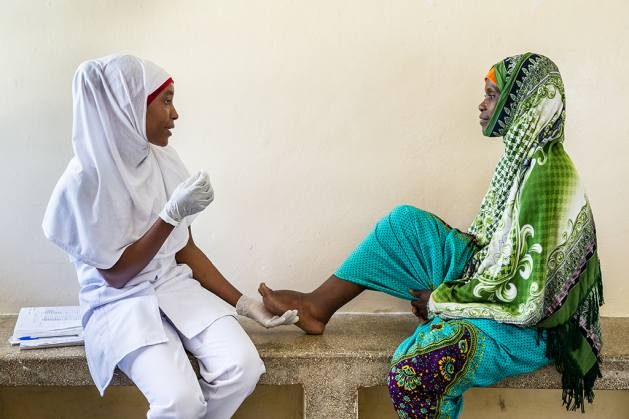To Improve Global Health Security, We Must Not Abandon Tackling Existing Epidemics

HOVE, United Kingdom, Jun 11 (IPS) - As world leaders come together in the UK for the G7, the global response to COVID-19 and how we can build a better defence system against infection is at the forefront of discussions. Whilst we applaud the incredible global efforts in tackling COVID-19 and support calls for vaccines to be shared equitably across the world, we also urge G7 leaders not to abandon efforts to tackle existing epidemics such as neglected tropical diseases (NTDs), HIV/AIDs, malaria, TB and polio.
The gains that have been made fighting these diseases must not be lost or we risk disease resurgence that will be even more costly to address, which could lead to a disastrous disease epidemic with mass consequences.
As demonstrated by COVID-19, health crises don’t pop up overnight. They are a consequence of systemic underinvestment in global health, lack of strong disease surveillance systems capable of detecting disease outbreaks, global data sharing protocols, weak health systems compounded by a lack of pandemic preparedness backed by sustainable financing for global health.
COVID-19 has shown us that it doesn’t matter whether you are a low, medium or high-income country. If you lack the essential medical supplies, lives will be lost. If you have a critical gap in health workforce and infrastructure, other essential health services will suffer as resources get diverted to fighting a pandemic. Moreover, diseases do not respect borders.
This is why we must not abandon efforts to tackle existing epidemics. Take neglected tropical diseases (NTDs), for instance, coined as such because of persistent neglect. NTDs is the collective name for a group of 20 infectious diseases and conditions. Diseases like blinding trachoma, leprosy, intestinal worms, Guinea worm disease and elephantiasis. They blind, disable, and can even be fatal. These diseases are preventable and treatable, yet they still affect 1.7 billion people around the world. They are a chronic epidemic that rarely make it to the top of anyone’s agenda. They affect the most vulnerable communities in low-resource settings, primarily in Africa.
Over 600 million people in Africa require treatment for an NTD, making up 35% of the global burden. Across the continent, 12 countries are on track to eliminate an NTD in the next three years – an extraordinary feat based on years of necessary action.
Vulnerable African communities currently face a triple burden; the pandemic has had a devastating impact on health services; cuts to NTD treatments will make them more vulnerable to tropical diseases, and the prospect of these individuals receiving a COVID-19 vaccine before 2023 is highly unlikely. This triple threat makes some communities in Africa more vulnerable to future outbreaks and increases the risk of disease resurgence, undermining efforts to improve global health security.
It is in the interest of all the G7 countries to sustain investments that directly underpin our safety, security and economic success – and to help shape a recovery plan that promotes the health and prosperity of individuals globally. Only then will we be able to prepare for and tackle future outbreaks of deadly infections.
We welcome the focus of world leaders on One Health, which is a collaborative effort to achieve health for people, animals and the environment at the local, national and global level. We urge G7 leaders to go a step further, beyond focusing on zoonotic diseases and antimicrobial resistance, which simply isn’t enough to truly build pandemic preparedness.
Future health threats could develop from different origins, patterns, nature or impact. All aspects of One Health must be included if we are to improve global health security, including tackling other diseases, such as NTDs.
This will be a win-win for people and countries everywhere. Investments in NTDs have been a success story with 43 countries having eliminated at least one NTD, including 17 in Africa and 600 million people no longer requiring treatment for them. But the UK government's recent exit from supporting NTD programmes, particularly during a pandemic, undermines years of progress and will deeply impact millions of Africans.
Now, 184 million tablets in 25 African countries are at high risk of expiring in 2021 and 2022 due to the funding cuts. By failing to place tackling NTDs and disease epidemics at the forefront of the global health security agenda, we risk our children’s lives and their future. Poverty will increase and access to education will be impacted. COVID-19 has shown the entire world how highly connected we are and now it is time for disease control to be dealt with collectively.
Thoko Elphick-Pooley is Executive Director of Uniting to Combat Neglected Tropical Diseases
© Inter Press Service (2021) — All Rights Reserved. Original source: Inter Press Service
 Global Issues
Global Issues